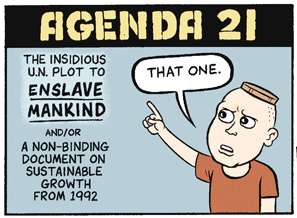Tim Lee lists four pro-growth policy reforms that he thinks liberals and conservatives can agree on:
- Let developers in coastal cities build more
- Boost high-skilled immigration
- Reform copyright and patent laws
- Liberalize occupational licensing rules
In theory, I suppose these could be areas of bipartisan agreement. But without throwing too much sand in the gears just to make a nuisance of myself, we should take a look at why all four of these things are so firmly going nowhere even though liberals and conservatives allegedly hold common cause on them. Here we go:
- Coastal cities. The problem here is that this is a pretty low priority for both liberals and conservatives. They just don’t care that much, and they certainly don’t care enough to fight the nonpartisan power bloc that unfailingly—and rabidly—opposes this: current residents of coastal cities. This is mainly a local issue, not a state or federal issue, and the fastest way for any local pol in LA or San Francisco to get tossed out of office is to propose lots of new high-rise residential buildings that will (allegedly) bring tons of traffic and crime into the community, and probably drive down current property values. So the game just isn’t worth the candle. Plus,
 conservatives have to watch out for the tea-party crazies who think high-rises are part of an Agenda 21 plot from the UN to make us all live like rabbits in government-controlled urban warrens. Or something.
conservatives have to watch out for the tea-party crazies who think high-rises are part of an Agenda 21 plot from the UN to make us all live like rabbits in government-controlled urban warrens. Or something. - High-skill immigration. There are people who oppose this—primarily high-skill citizens who don’t really want lots of new competition—but that’s not the big problem. Mainly this is a political football. Sure, liberals and conservatives agree on this particular part of immigration reform. But liberals don’t want to unilaterally agree to it. They want it to be one of the bargaining chips for broader immigration reform. After all, if they preemptively agree to all the stuff conservatives already support, they have no leverage for eventually negotiating a comprehensive bill that includes some stuff conservatives don’t support. So for the time being, it’s being held hostage and that shows no signs of changing soon.
- Copyright and patent. I dunno. For a policy that liberals and conservatives allegedly agree about, we sure haven’t seen much action on it. Quite the contrary, in fact. Most Republicans and about a third of Democrats just approved fast-track status for the TPP treaty, which, among other things, enshrines American-style copyright and patent law on everyone who’s part of the treaty. Once that’s in place, we couldn’t change our laws in any meaningful way even if we wanted to. And frankly, I’ve seen very little evidence that either Republicans or business-oriented Democrats really want to. They’re too interested in currying favor with IP owners to bother with an issue that will win them virtually no votes from anyone on Election Day.
- Occupational licensing rules. This one, finally, is a bit of a mystery to me. I agree that it’s not an inherently partisan issue, but in a way, that’s the problem. It’s also not a hot-button issue, which means neither party is really willing to fight back against it. On the other hand, taxidermists, animal trainers, bartenders, funeral attendants, and so forth are willing to fight for it since it restricts entry and raises wages in their profession.
There’s a common theme to all four of these issues: there are special interests who care a lot about them, but no real benefit for working politicians to reach across the aisle and fight back. In theory, they might have similar attitudes on these four items, but why bother doing anything about it? No one is jamming their phone lines about this stuff and no one is voting for or against them based on their positions. If activists want action on this kind of googoo stuff, they have to figure out a way to make the public care. Once they do that, they’ll have at least a fighting chance of getting politicians to care too. Until then, don’t get your hopes up.

















